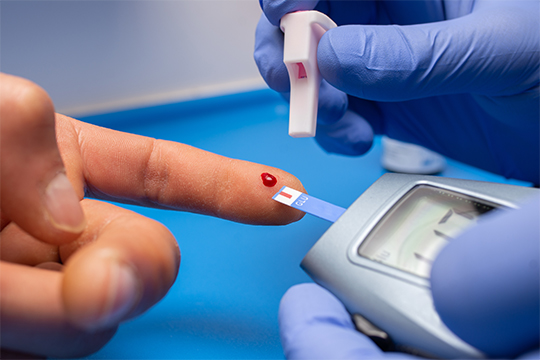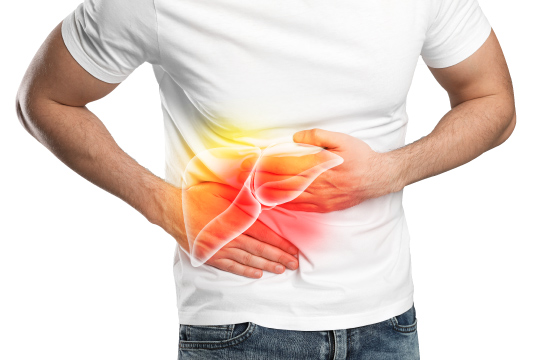Home > Disease and Treatments > Understanding ADHD in Children: Symptoms, Causes, and Treatment
Understanding ADHD in Children: Symptoms, Causes, and Treatment
ADHD in children
Millions of children and adults suffer from attention-deficit/hyperactivity disorder (ADHD). There are several symptoms of ADHD, including an inability to maintain attention, hyperactivity, and impulsivity.
There's nothing unusual about children forgetting their homework, daydreaming during class, acting without thinking or fidgeting at dinner. There is also a link between inattention, impulsivity, and hyperactivity in attention deficit hyperactivity disorder (ADHD).
ADHD children are also more likely to have low self-esteem, troubled relationships, and poor academic performance. Symptoms can lessen with age. There are, however, some people who never completely outgrow their ADHD symptoms. It is possible to learn strategies that will help them succeed.
There is no cure for ADHD, but treatment can greatly reduce symptoms. Medication and behavioural interventions are usually used in treatment. A positive outcome can be achieved with early diagnosis and treatment.
ADHD symptoms in children
ADHD symptoms vary from child to child. The following key signs tend to be present in most kids:
Inattention. Distractions or difficulties paying attention may be affecting your child.
Impulsivity. The child interrupts other people without thinking.
Hyperactivity. There is constant motion, overactivity, or excessive talking in your child.
Combined. The symptoms are a mix of inattentiveness and hyperactivity/impulsivity.
Signs of inattention include:
The following are common symptoms of inattentive children:
- Having trouble completing tasks
- Frequently losing things
- Lack of memory
- Having trouble organizing and prioritizing tasks
- Easily distracted
- Making careless errors
Signs of hyperactivity and impulsivity include:
- The act of constantly fidgeting (moving hands, or feet due to nervousness, boredom, excitement, etc.)
- Lack of concentration
- Intruding or interrupting others, for instance, during conversations, games, or activities
- Taking over a person’s sentence and answering a question before they have been fully asked
- Overtalking
ADHD symptoms in toddlerhood
ADHD is not usually diagnosed until a child reaches the age of 4, although it may occur earlier. Most ADHD symptoms are similar to those of a typical toddler. Here are some signs your child might have ADHD:
- In preschool or daycare, they often get into trouble.
- Their behaviour differs from that of most other kids their age.
What causes ADHD in children?
The exact causes of Attention-Deficit/Hyperactivity Disorder (ADHD) are not fully understood, and a combination of genetic, environmental, and neurological factors likely contribute to its development. Here are some factors that are believed to play a role in the development of ADHD in children:
- Genetic Factors:
There is a strong genetic component to ADHD. Research indicates that children with a family history of ADHD are more likely to develop the disorder themselves - Brain Structure and Function:
Differences in brain structure and function have been observed in individuals with ADHD. - eurotransmitter Imbalances:
ADHD is linked to imbalances in neurotransmitters, which are chemicals that transmit signals in the brain. - Prenatal and Perinatal Factors:
Certain prenatal and perinatal factors may increase the risk of ADHD. - Premature Birth and Low Birth Weight:
Children born prematurely or with low birth weight may be at a higher risk of developing ADHD.
Diagnosis
There is no simple test for ADHD. Your doctor or specialist will make a diagnosis based on your child's symptoms, medical history, and physical exam.
The following conditions may lead to an ADHD diagnosis for your child:
- At least six ADHD symptoms, such as fidgeting or being easily disturbed, are present in them.
- Symptoms last for at least six months.
- Your child suffers from these symptoms in more than one setting, such as at home, at school, and in social settings.
- Before the age of 12, they began experiencing symptoms
You should consult your paediatrician if you suspect your child has ADHD. If you think that your child is experiencing difficulties and your doctor refers you to a specialist, such as a developmental-behavioural paediatrician, psychologist, psychiatrist, or pediatric neurologist, it is important to have a medical evaluation first to determine if there is another factor at play.
ADHD Treatment for Children
A combination of behavioural therapy and medication is more effective than medication alone for long-term treatment.
Children under the age of 6 should receive behavioural therapy. As they age, their doctor may prescribe medications as well.
ADHD behavioural treatment options for children
The therapist or doctor can teach children techniques for managing their behaviours more effectively. Also, they can teach parents how to manage their children's behaviour in a variety of ways, such as
- Parental Training
- School Interventions
- Counselling and Psychotherapy
- Educational Support
- Mindfulness and Relaxation Techniques
- social Skills Training
Medications for treating ADHD in children
Often, children with ADHD are treated effectively with psychostimulants (or simply stimulants). As a result of these medicines, children can focus on their thoughts and ignore distractions. Some non-stimulant medications work similarly to treat ADHD., such as atomoxetine (Strattera) and guanfacine (Intuniv), may also be considered. Medications help regulate neurotransmitters in the brain to improve attention and impulse control.
ADHD alternative treatments
There is no evidence that alternative treatments can alleviate ADHD symptoms. It has been reported that some people have benefited from:
- Yoga: Exercise like this can help your child relax and learn discipline.
- Meditation: This may reduce your child’s anxiety
- Neurofeedback training: An electroencephalograph (EEG) is used to scan your child’s brain activity while they focus on a task. As a result, the machine provides feedback to the child when they are losing focus.
Prevention
Here are some tips to help reduce your child's risk of ADHD:
- Pregnant women should avoid anything that could harm their developing fetus. Avoid drinking alcohol, using recreational drugs, and smoking cigarettes, for instance.
- Ensure that your child is protected from pollutants and toxins, such as lead paint and cigarette smoke.
- Screen time should be limited. For children under the age of five, it may be advisable to avoid excessive exposure to television and video games.
Disclaimer
This is general information about the disease and treatment options, please consult a specialist doctor for the right diagnosis and treatment which may vary based on each patient.
ADHD treatment at Royal Care
For ADHD treatment for children, contact the Royal Care Hospital pediatric department or child psychiatry department for specific information. A paediatrician or child psychiatrist can provide tailored advice based on the child's needs.





